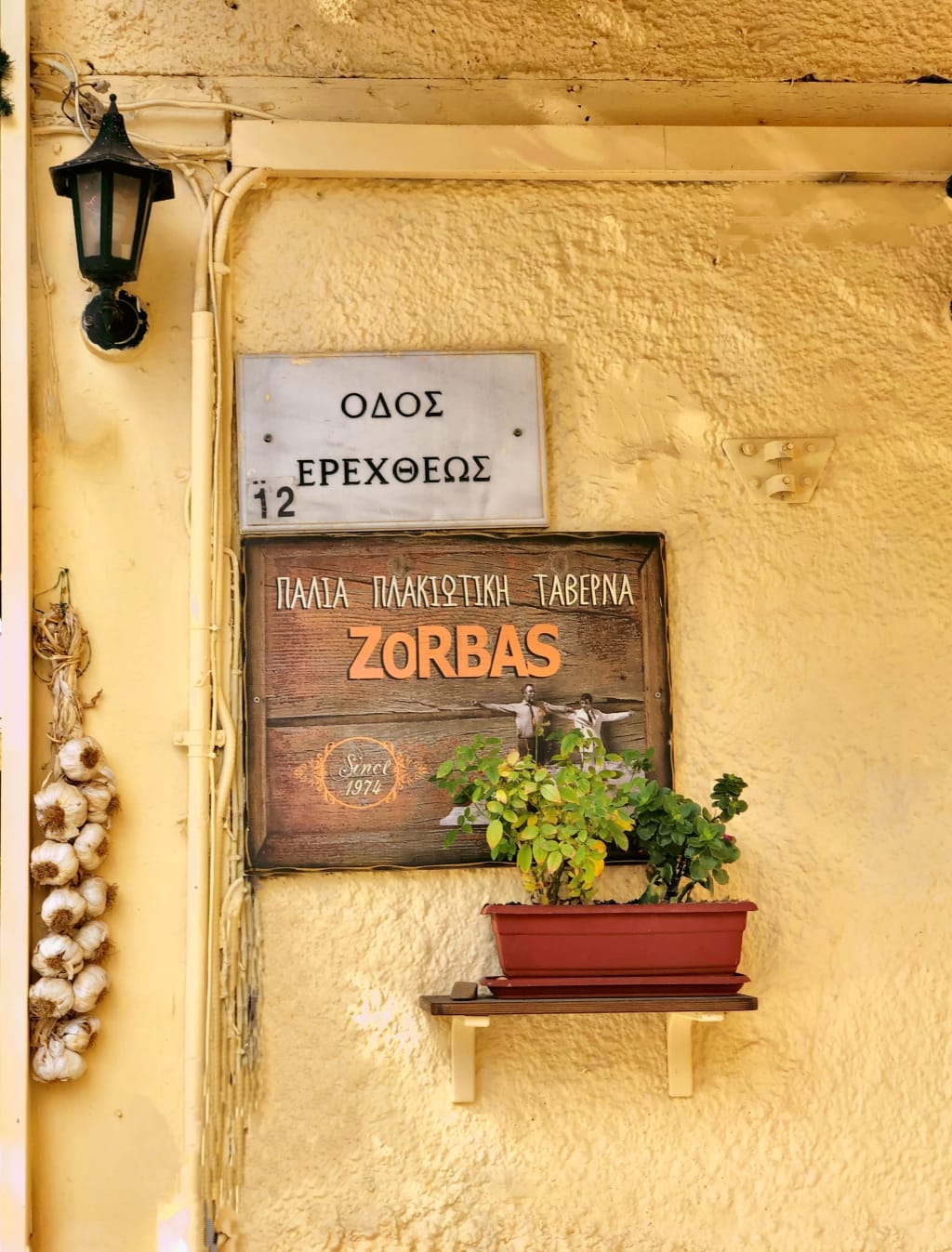
The psychologist Winnicott believed that those in childhood raised by depressed or abusive parents would tend to develop a hyper-compliant false self. They may learn to not ask for attention and will give up on being spontaneous. "The child gives up on having a spontaneous desiring self in order to act as the parent to his or her parents." What's the big deal with being spontaneous?
The classic Zorba of the Greek is perhaps the greatest literary answer to this question in which a mundane man collides with a Greek character named Zorba who exudes passion spontaneity and the capacity for dance in the best and worst of times. Zorba feels like someone you might have met before. His familiarity is emergent and his sense of feeling at home no matter what and championing life above all else. The greater lesson to be learned from Zorba is his constant embrace of happiness through his immediate environment. The narrator quotes Confucius who argues that: "Many seek happiness higher than man; other beneath him. But happiness is the same height as man."
Some pursue happiness through intellectual pursuit unraveling the puzzle of the universe or perhaps they work many hours in search of the ideal life. Others seek happiness in quick fixes of material attainment and substance abuse. Zorba admittedly isn't reluctant to indulge in the latter but it is how he does so that I find intriguing. He desires no object nor does he wish to be seen a certain way. He is in a sense entirely free. And what does he do with this liberty? He dives right into all that surrounds him: singing, dancing, joking, listening, laughing, eating, and drinking. What a strange machine man is! You fill him with bread, wine, fish, and radishes, and out of him comes sighs, laughter, and dreams. Like a factory. I'm sure there's a sort of talking film cinema in our heads.
This is an energy of Thumos somebody who embraces their wild side and is entirely drunk on life itself. The desire to dance, to sit at a park and read all day, and to swim in the ocean, are all immediately embraced. There is little hesitancy as any doubts are washed away by the beautiful understanding that this is all there is. Such an impulse can be reckless. Zorba breaks hearts and makes deadly mistakes throughout the novel and to a degree his personality is out of touch with the modern world as the narrator explains. In more primitive and creative ages, Zorba would have been the chief of a tribe. He would have gone before, opening up the path with a hatchet. Or else he would have been a renowned troubadour visiting castles, and everybody would have hung on his words - lords and ladies and servants... In our ungrateful age, Zorba wanders hungrily around the enclosures like a wolf.
To live like Zorba is to risk going mad. But there is an important difference between going mad versus embracing some madness from time to time. These are some of the best moments of our lives. I think back to dancing on beaches and New Year's intimate walks with friends at night. These are all moments in which I put madness above my fears or plans. This of course takes some form of courage. To go mad is to learn to die in a sense. To let go of your ego and fully embrace the rhythm of existence, you're going to look stupid and fail and fall flat on your face many times. This is natural. "Every man has his folly, but the greatest folly of all... is not to have one."
Zorba embraces madness because it is the only acceptable way to exist in full consciousness of death. If we were to die in the next few moments, we would surely do things that would look insane: confess our love frantically, indulge in amazing meals at weird hours, shed our occupation, and dance in the street. This is how Zorba lives whether he dies or not. And in the face of death, madness begins to look pretty sane.
It's a little too simple to hear Zorba's instructions to live life and enjoy it when the world is so complex. But giving into some madness might simplify the world just enough to do so and in the language of Winnicott it just may lead you to your true self. How simple and frugal a thing is happiness: a glass of wine, a roast chestnut, a wretched little brazier, the sound of the sea. Nothing else. And all that is required to feel that here and now is happiness is a simple, frugal heart.
About the Creator
Pondering Frog
Philosophy, motivation, advice and maybe even sports analysis.
Enjoyed the story? Support the Creator.
Subscribe for free to receive all their stories in your feed. You could also pledge your support or give them a one-off tip, letting them know you appreciate their work.






Comments
There are no comments for this story
Be the first to respond and start the conversation.